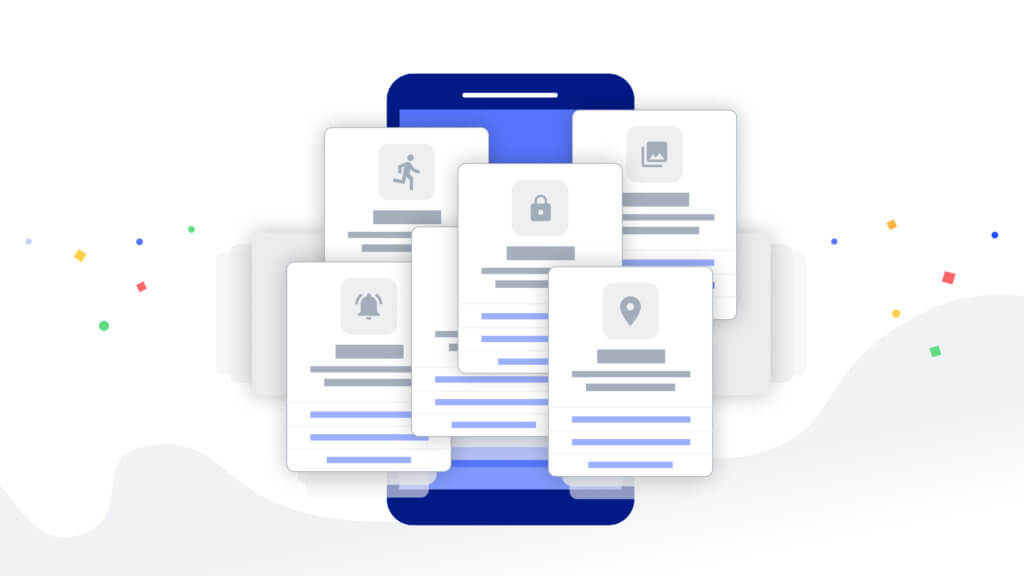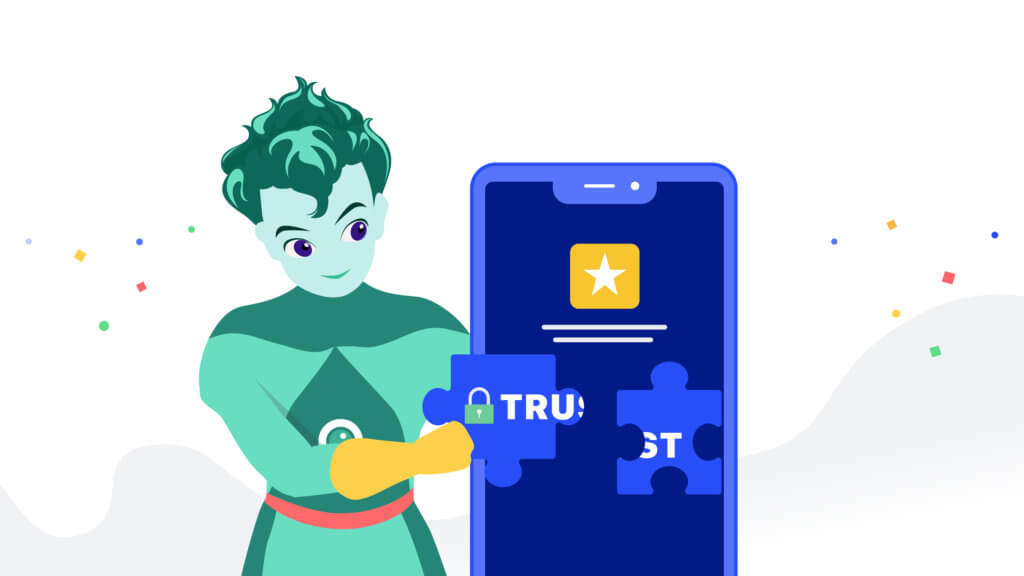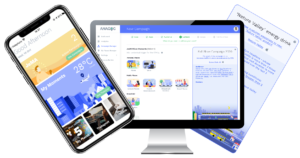Between “All the time” and “Never”. Becoming Permissions-agnostic
When it comes to mobile engagement, apps that seek to make services more personalized must recognize that it is not just about how much personal data they can gain access to. It is about earning the customers’ trust. Generating this trust includes making phone users aware of what the apps running on their phone intend to do and giving them the option to approve or not. These are called ‘permissions’. Anagog helps you gain that trust by pursuing a permission-agnostic approach.
Permissions must be granted, by the users, who are entrusting the app with access to a variety of sensitive personal data. This makes perfect sense since, let’s face it, engaging in hyper-personalization before you have established trust is creepy; it’s the difference between a close friend and a stalker. Anagog makes it easier to make these requests and even more importantly, to bring value even without them.
Is there such a thing as too many Permissions?
In the early days of mobile apps, it seemed that developers collectively decided, in the words of a prominent early computer programmer: It is easier to ask for forgiveness than to get permission. So it was not all that surprising when, last year, Avast conducted a study to identify the 10 applications that were requesting the most permissions on Google Play. The result was astounding; of the top 10 applications, in terms of amount of permissions requested, all ten were…flashlight apps (anywhere between 68-77 permissions per app). One can only assume what they did with the data; but few could understand why the flashlight needed access to make calls, read and write contacts or record audio.
That is why customers and regulators began to insist on better protections on personal, private data, and mobile operating systems rushed to comply. Today, apps must follow a long list of strict guidelines; in order to obtain the permissions necessary for accessing sensitive data: such as locations, activities, camera, voice recording and more.
The challenge is that personalization clearly works best when different types of information can be used to paint a complete picture; such as habits, activities and current preferences. So apps still seek certain permissions. And in particular, when it comes to locations, obtaining them has almost become an art form, (we will cover Tips for Getting App Permissions in a future post).
Regardless of how and when you make the request for permissions; it is totally unrealistic that your entire user base will respond in the same way. Some may be more suspicious by nature, some may have had a bad experience in the past, some may not understand why you mad
e the request in the first place. An app should aim for the best User Experience for all customers.
With Anagog, you can be permissions-agnostic. Where users have not granted any locations permissions, you can target them based on other data points, (such as demographic or transactional data). Where users have allowed partial, ‘When in use’, access, you can provide personalized experiences. Based on what they are doing when they are using the app and where they are doing it. And where the users have allowed access to location data ‘All the time’, you can provide a hyper-personalized experience. Based on their real-world activities, engaging them based on their real-time context. Customers who haven’t granted permissions are not a threat; they are an opportunity. An opportunity to earn their trust by gradually providing incremental value. Showing them how personalized engagement can benefit them and explaining that with access to more data, you can provide something even better.
The JedAI Product Suite is architected to respect and protect privacy. No data is shared outside of the device; Instead of passing along information to a cloud for processing, Anagog’s Edge AI makes the app smarter; so it can do all the analysis locally. This can go a long way to reassuring customers that their data is safe. However, there will always be users who may deny certain permissions, for a variety of reasons. With JedAI you’ll be able to provide value to all your customers, under any circumstance.


